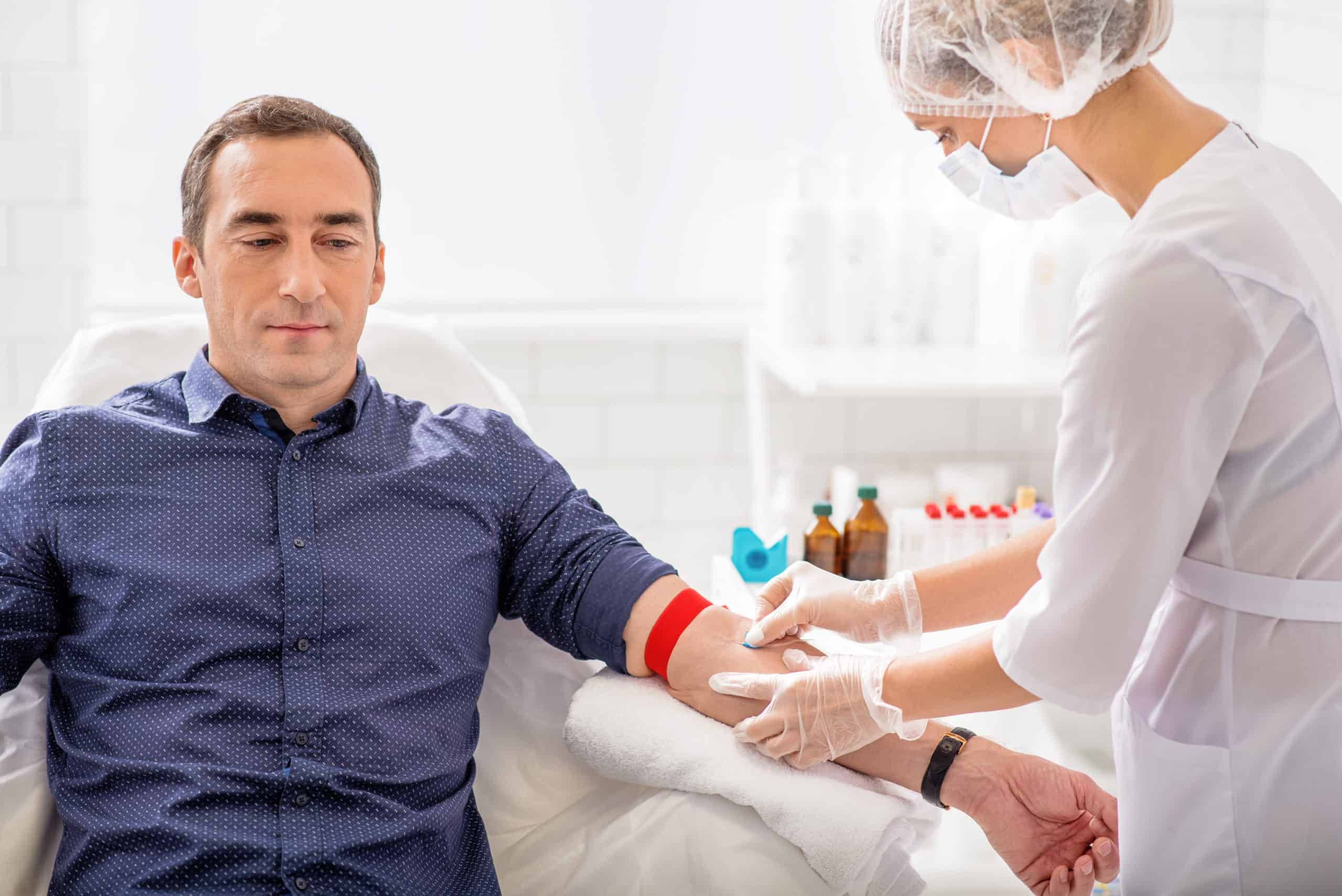
To make an arrest or obtain a conviction for a DWI in Grand Prairie, police and prosecutors often rely on breathalyzer or blood testing evidence. These tests endeavor to prove that a driver had a blood alcohol concentration (BAC) above the legal limit.
However, these tests often fail to produce accurate results, even though judges and jury members regard them as reliable and scientifically proven. A breathalyzer and blood test defense lawyer in Grand Prairie may be able to demonstrate the flaws in these tests, and even convince the judge to throw the evidence out.
Contact the Law Offices of Randall B. Isenberg for help: 214-696-9253.
When Can Police Administer Blood or Breathalyzer Tests?
Texas laws regarding the administration of blood and breathalyzer tests can be complicated. The Texas statutes dictate that the police cannot administer a breath or blood test at the location of a traffic stop. To give you either type of test, they must take you to the designated location.
For a breath test, that location is typically the police station. Blood testing may take place in any sanitary location, according to the Texas Transportation Code § 724.017.
However, to arrest you, officers must first establish probable cause. To do so, they often use field sobriety testing or portable breathalyzer tests. The results of these tests are usually not admissible in court. To determine your actual BAC, a technician must perform testing at the designated location using a specific type of equipment.
And before the police can make a traffic stop, they must have reasonable suspicion you have broken the law in some way (e.g., you were driving erratically, you ran a stop sign, etc.).
What Is the Procedure for Conducting Breathalyzer and Blood Tests?
At the police station, officers will ask you to submit to chemical BAC testing. The officer has the option to choose the type of test, which could be breath, blood, or urine.
Most often, officers opt for breath testing using equipment known as an Intoxilyzer.
Per the Texas statutes, the technician who administers the testing must meet specific requirements for training and certification. Those guidelines, overseen by the Texas Department of Public Safety’s (TxDPS) crime lab, require that the technician carry TxDPS certification for operating the Intoxilyzer system.
In addition, the police department must obtain certification to use the breath testing equipment. They must also comply with the Standardized Field Sobriety Test (SFST) standards guidelines published by the National Highway Traffic Safety Administration (NHTSA).
The testing technician, after verifying the equipment’s condition, must administer the test two or more times. This allows the tech to compare the results of each test to verify the accuracy of the outcome.
If the police request that you submit to blood testing, rather than a breathalyzer, they must typically transport you to a lab facility to comply with the statutory guidelines for blood toxicology.
These procedures theoretically help to ensure the veracity of BAC test results and make it harder for breathalyzer and blood test defense lawyers to challenge the outcome. However, if anyone in the process fails to follow established procedures and guidelines, it may render the results inadmissible in court.
How Can Breathalyzer and Blood Test Lawyers Challenge DWI Testing?
DWI lawyers who routinely challenge breath and blood testing results know that positive chemical tests do not automatically equate to a conviction.
While we can more easily challenge breathalyzer results, we can potentially invalidate any chemical testing under the right circumstances.
Our Grand Prairie DWI lawyers will carefully review all the facts of your traffic stop, arrest, and chemical testing in search of potential errors or weaknesses in the case.
Depending on the nature of the issue, we can use this information to negotiate with the prosecutor to have your charges reduced or dropped. Alternatively, your lawyer may petition the court to have the faulty evidence thrown out, leaving the prosecutor with little or no evidence in your case.
The legal basis for accomplishing this task may pertain to one or more of these common legal strategies for challenging BAC testing results.
Reasonable suspicion: Officers must establish a valid, legal basis to make a traffic stop. That reason could be that you broke any law, such as exceeding the posted speed limit, making an illegal lane change, or driving with a broken tail light. The police can also cite weaving, swerving, or driving erratically as reasonable suspicion. If the officers never established reasonable suspicion, we can challenge any evidence obtained as result of the stop.
Probable cause: Once the police stop your car, they must establish probable cause to make an arrest and ask you to submit to BAC testing. Field sobriety tests provide a potential area of challenge, especially if the officer failed to follow NHTSA guidelines for field sobriety testing. If the police did not follow the guidelines, or if dash-cam footage establishes acceptable performance on the tests, we may assert that the officers failed to establish probable cause for arresting you.
Breathalyzer testing problems: If the police or the testing technician violated any guidelines for administering breath testing, if the technician lacked certification, or if the technician failed to maintain the equipment, we can challenge the results. They must also provide you with a statutory advisory before testing, using the Texas DIC-24 DWI warning form, otherwise the results are not admissible as evidence in your case.
We have both Intoxilyzer 5000 models the police use at our office, so we know exactly how they work, what maintenance they require, and how common a false result is.
Confounding conditions: If you take certain medications, they can interfere with the accuracy of the breathalyzer. Also, some oral care products can cause a false-positive result. If you used any product or took any medications known to interfere with breath testing, we can challenge the results.
Blood test problems: If the police request that you submit to blood testing for BAC, the testing must comply with statutory guidelines with regard to who can draw blood and how they must complete the draw. They must submit the blood evidence to a lab for analysis. We might identify potential areas of challenge anywhere within this process.
Speak with a Breathalyzer and Blood Test Lawyer in Grand Prairie for Free
Talking to a breathalyzer and blood test attorney as soon as possible after your arrest will allow your lawyer a chance to examine the evidence in search of potential strategies to help with your case.
Any potential problems can provide your lawyer with leverage to negotiate with the prosecutor for a reduction or dismissal of your charges.
The Law Offices of Randall B. Isenberg represents clients facing DWI charges in Grand Prairie. We offer a complimentary consultation to answer your questions and help you determine the best course of action. Contact us today at 214-696-9253 to schedule an appointment.










